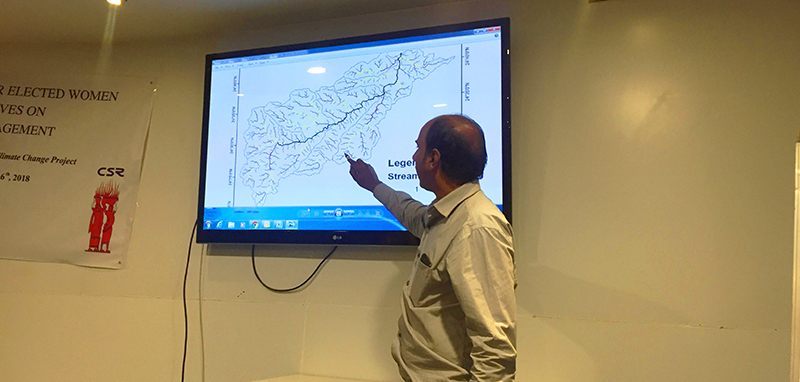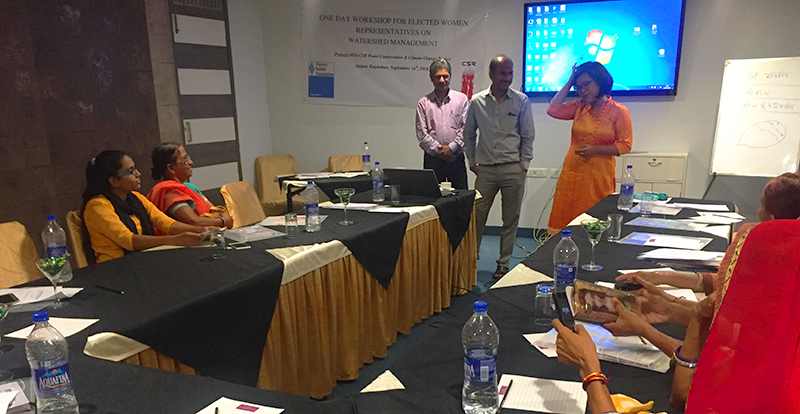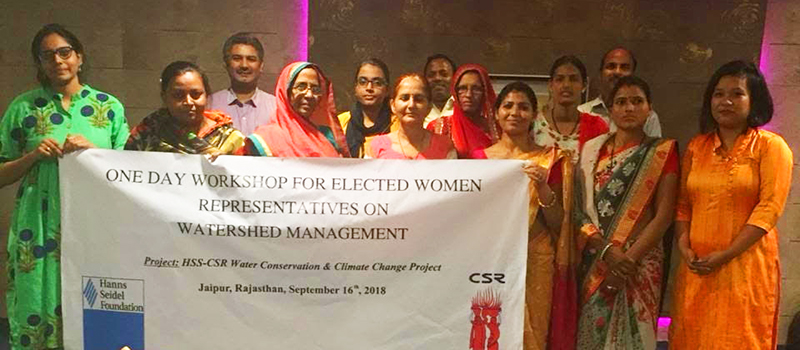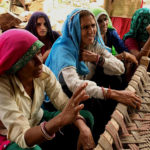Rajasthan as a water-scarce region is a well-known fact. What’s less revered is the fact that women play a key role in conservation of water, planning and maintaining efficient systems of water management, and actively participating in devising new yet traditional means of facing water paucity.


Centre for Social Research has been involved in the gender-climate change nexus since eight years now, and is currently imparting technical trainings to Elected Women Representatives (EWRs) from Jaipur and Abu Road in Rajasthan, to equip them with technical knowledge about water systems and increase their agency in decision-making around these. As part of this, it organized a one-day workshop in Jaipur with the help of its local partner, Gramin Vikas Navyuvak Mandal Laporiya and overall support by Hans Seidel Foundation. The key agenda of this workshop was to acquaint the EWRs with conceptual knowledge about watershed, its natural occurrence in Rajasthan, and how to increase or decrease the size of a watershed. Through pictorial representations and using maps of Rajasthan, various watersheds in Rajasthan were highlighted, and their boundaries were shown. Additionally, the relevance of these watersheds was discussed in the context of Jaipur, also explaining how they can be further used for small-scale purposes. For instance, the area around a communal watershed can be used for livestock purposes, dairy shops and other activities which support livelihood generation.


The socio-cultural beliefs towards preservation of watershed were addressed. There are many watersheds which are untouched, and the flow of water is non-contested among the wider community because of the cultural sentiments held by people. For example, the Mandavpura ‘oran’ (a traditional term for a communal watershed) has been proactively maintained by villagers because they believe that it will bring good luck, keep the villagers away from difficulties and also provide for many grazing animals.


EWRs were especially encouraged to be aware of the implementation process. They were told how to access the local-level maps of districts that they are a member of, conduct social assessment and then evaluate the existing government schemes and their usage. Under the Integrated Watershed Management Planning scheme, Rs 12,000 are allocated for every hectare of a village which can potentially form a watershed. Therefore, since the average area of a village is 500 hectares, Rs, 6 crores are, in principle, allocated for complete formation and maintenance of watersheds. The EWRs were taken aback by this number and were demonstrated how the government schemes have been unable to completely use this budget efficiently. They were also made aware that there is a gap of ten years before a watershed is to be maintained again.
This workshop was guided by experts from another local NGO, ARAVALI, who are skilled at equipping local community with knowledge about government schemes and therefore generating a movement of social inclusion. In the past, CSR has organized technical training workshops on groundwater conservation and water budgeting, and hopes for greater strives in the field of climate change and water in Rajasthan to build capacities of women leaders and increase their participation in public and federal spaces.




